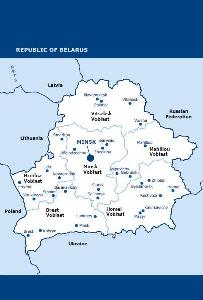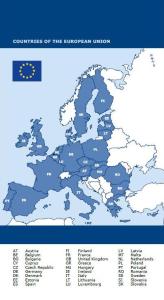Belarus and the EU: from isolation towards cooperation
CONTENTS
- Dr. Hans-Georg Wieck. Consultancy Project: Belarus and the EU
- Dr. Vitali Silitski. Belarus in an international context
- Dr. Kai-Olaf Lang, Dr. Martin Koopmann. The EU and Belarus – a relationship with reservations
- Andrei Yahorau. Civil society: an analysis of the situation and directions for reform
- Dr. Svetlana Matskevich. Education in Belarus: reform and cooperation with the EU
- Valeri Fadeev. State bodies, constitutional reality and forms of rule
- Dr. Andrei Kazakevich. Judiciary and law enforcement authorities
- Dr. Mikhail Pastukhou. Mass Media in Belarus: the hard way to freedom of speech
- Leonid Kalitenya. Belarus–EU: migration, border policy and visa issues
- Alexander Chubrik. Current situation and outlook for cooperation with the EU: socio-economic and infrastructural aspects
- Alexander Chubrik. Energy, environmental protection and combating climate change: main development trends and prospects for cooperation with the EU
- Expert Think Tanks
- Centre for European Studies
- Konrad-Adenauer-Stiftung
Dr. Hans-Georg Wieck, the project’s co-author and the book’s co-editor, describes the project in the introductory article of the book: “The project works on the assumption that, for various reasons, there is growing interest among the government, opposition and the general public in Belarus in developing closer ties with the EU and its member states. However, the inner workings of the European Union and the requirements for rapprochement between Belarus and the EU are not well known within the country… To this end a study has been undertaken, as part of the consultancy project, on the status of the country’s governmental, economic, social and legal situation in various key areas that are to a large extent still influenced by the structures of the Soviet Union. The results of the survey can be used to identify those steps necessary for the country to reform and for its structures to become compatible with the European Union, a process that was and is essential for all former socialist countries seeking integration with the EU.” Despite the fact, that political and economic situation was quite turbulent in Belarus and around it since the book’s articles were submitted (end of year 2010), most of the conclusions and recommendations presented remain in force both for Belarus and for its partners in the region.
The authors of the book hope to reach out to and discuss the project’s findings with a wide range of stakeholders: policy- and decision-makers in Belarus and in EU institutions, analytical groups, think tanks, independent expert communities; participants of the Eastern Partnership platforms; civil society; mass media, etc. In Autumn 2011, a series of book presentations is organized in Belarus, its neighbouring countries and in Brussels (the latter organized in cooperation with the Centre for European Studies).
The book is published in print in two languages: Russian and English, and electronically (available on the KAS-Belarus website free-of-charge) in three languages: Belarusian, Russian and English.
This is a joint publication of the Centre for European Studies and the Konrad-Adenauer-Stiftung. This publication has received funding from the European Parliament. Sole responsibility for facts or opinions expressed in this publication rests with the authors. The Centre for European Studies, the Konrad-Adenauer-Stiftung and the European Parliament assume no responsibility either for the information contained in the publication or any subsequent use of it.




